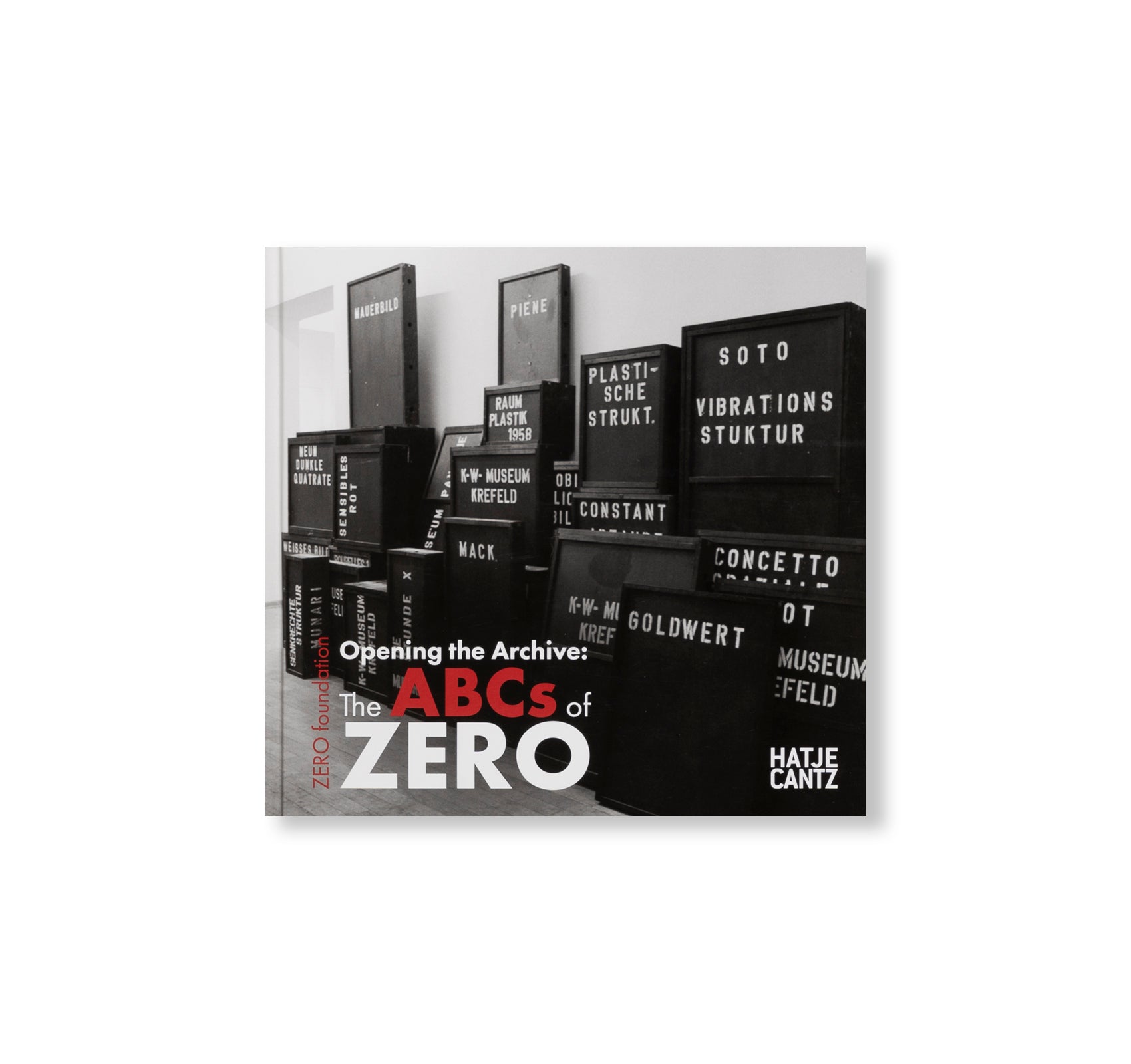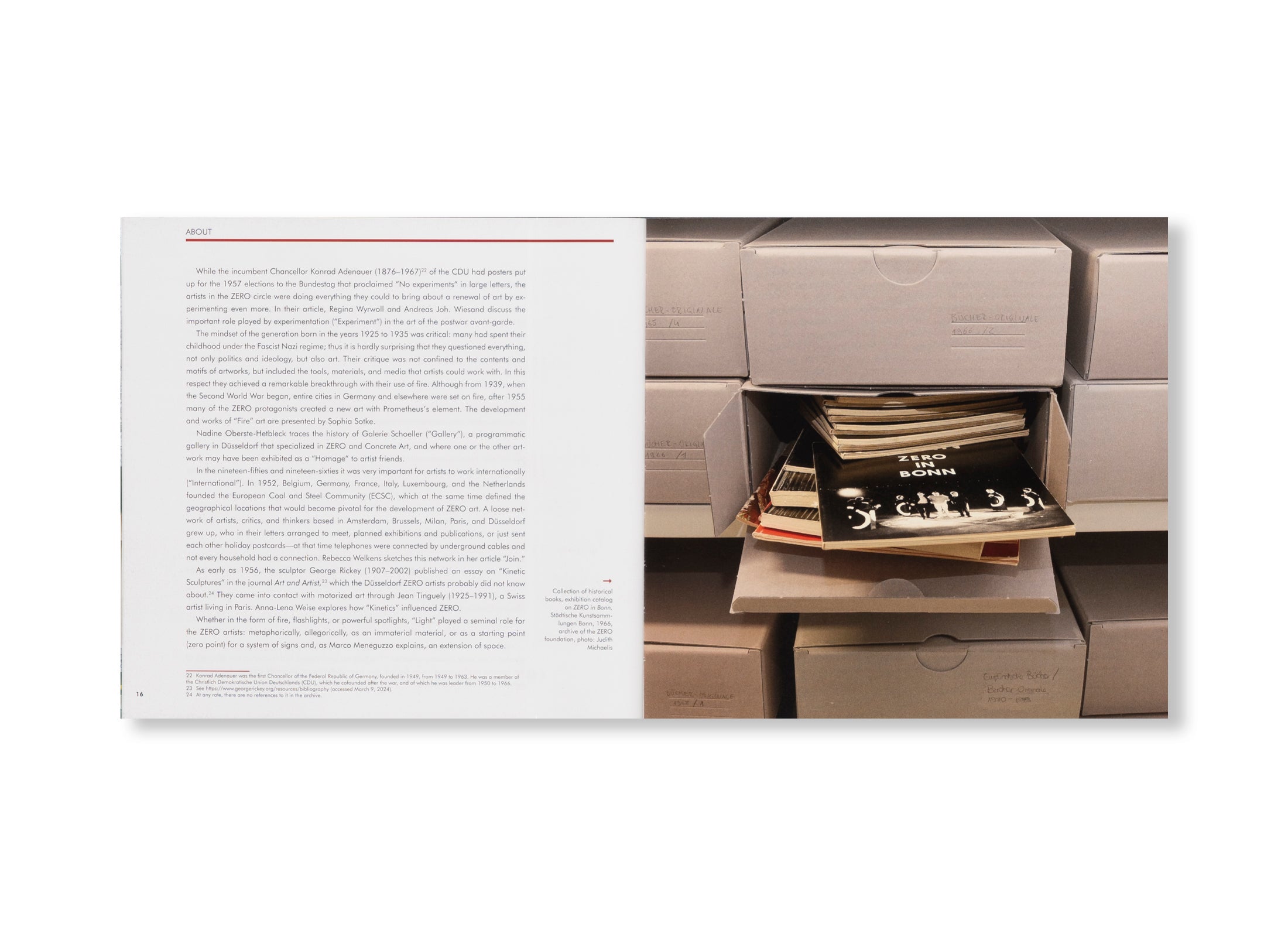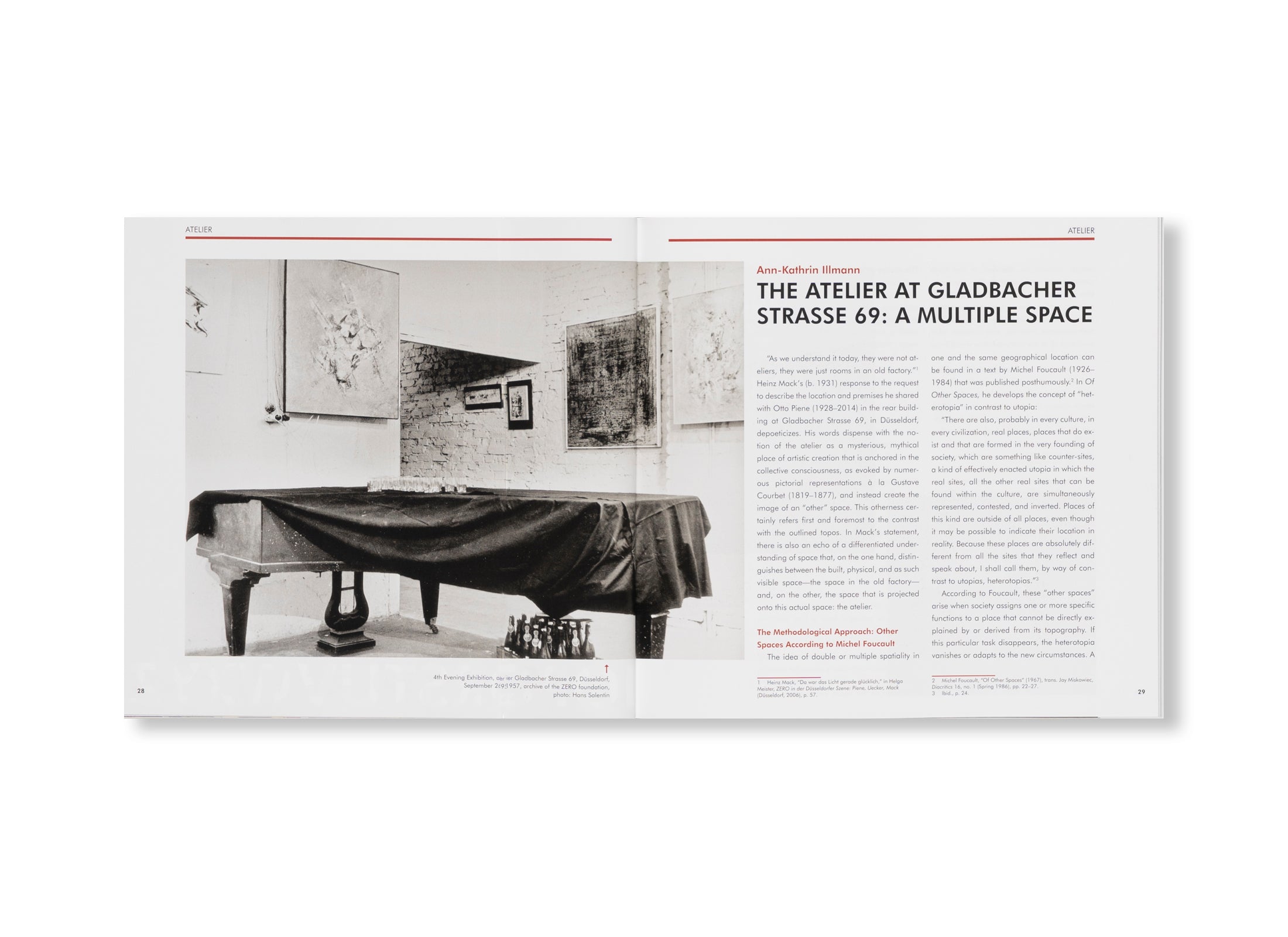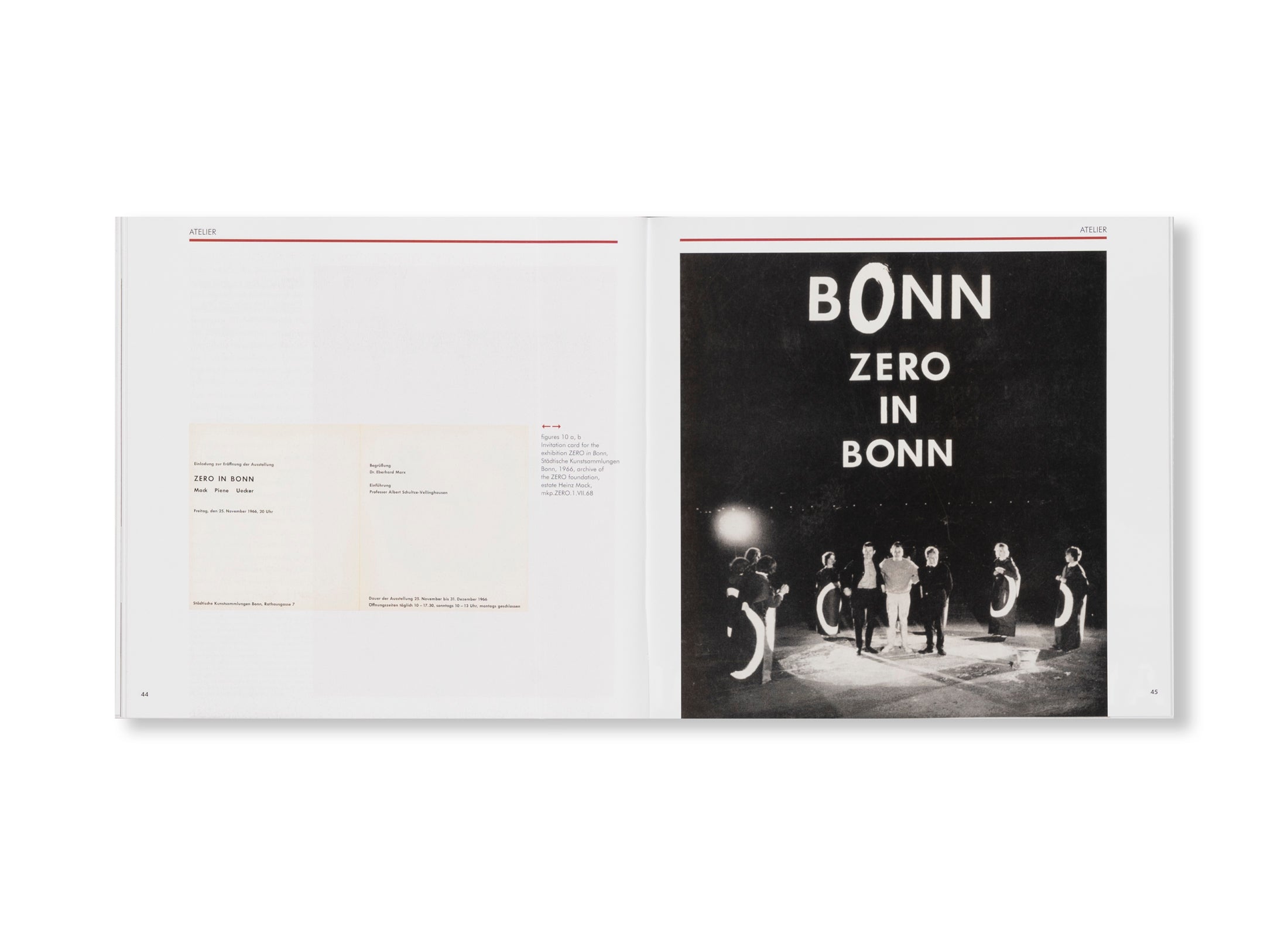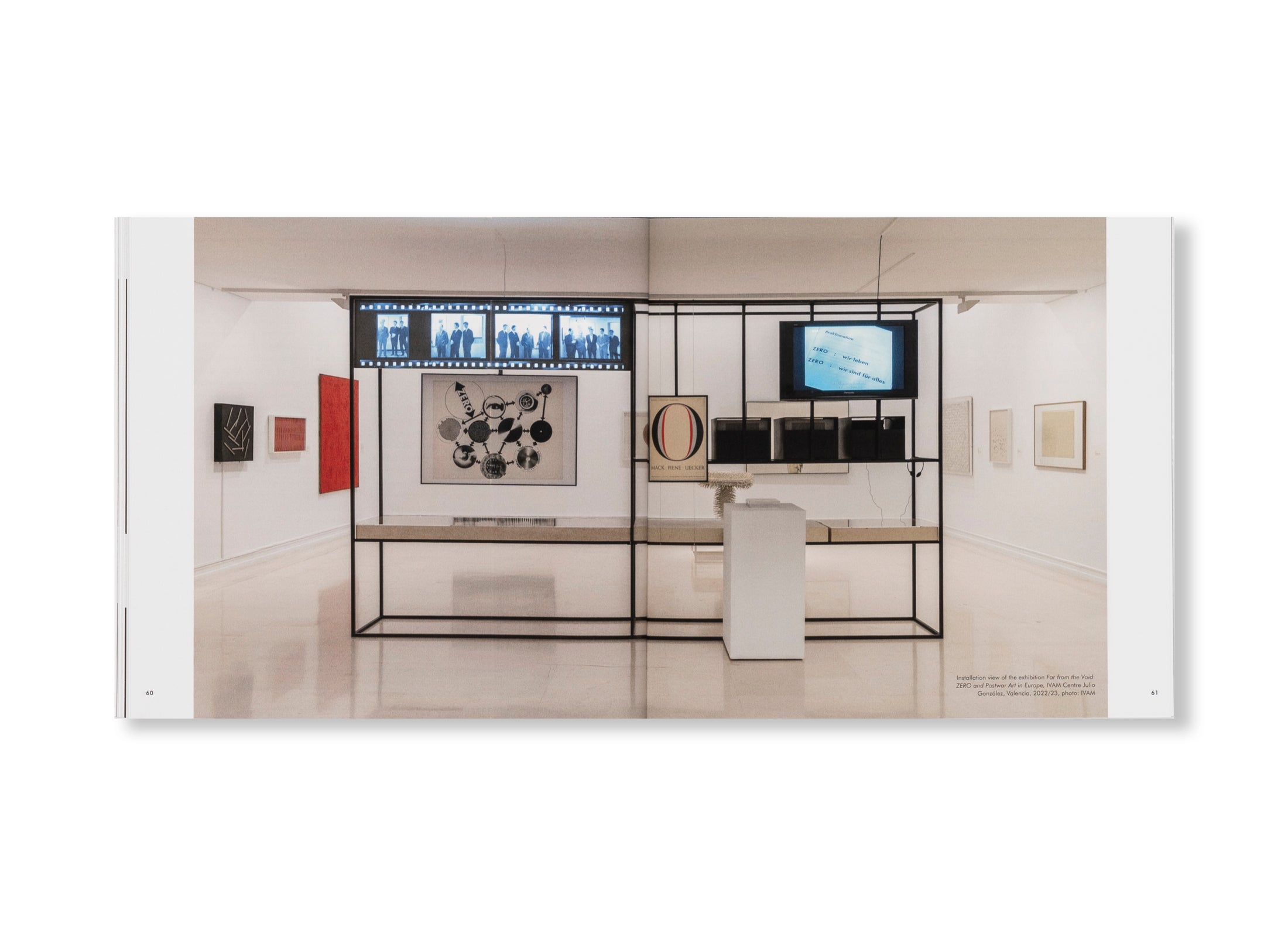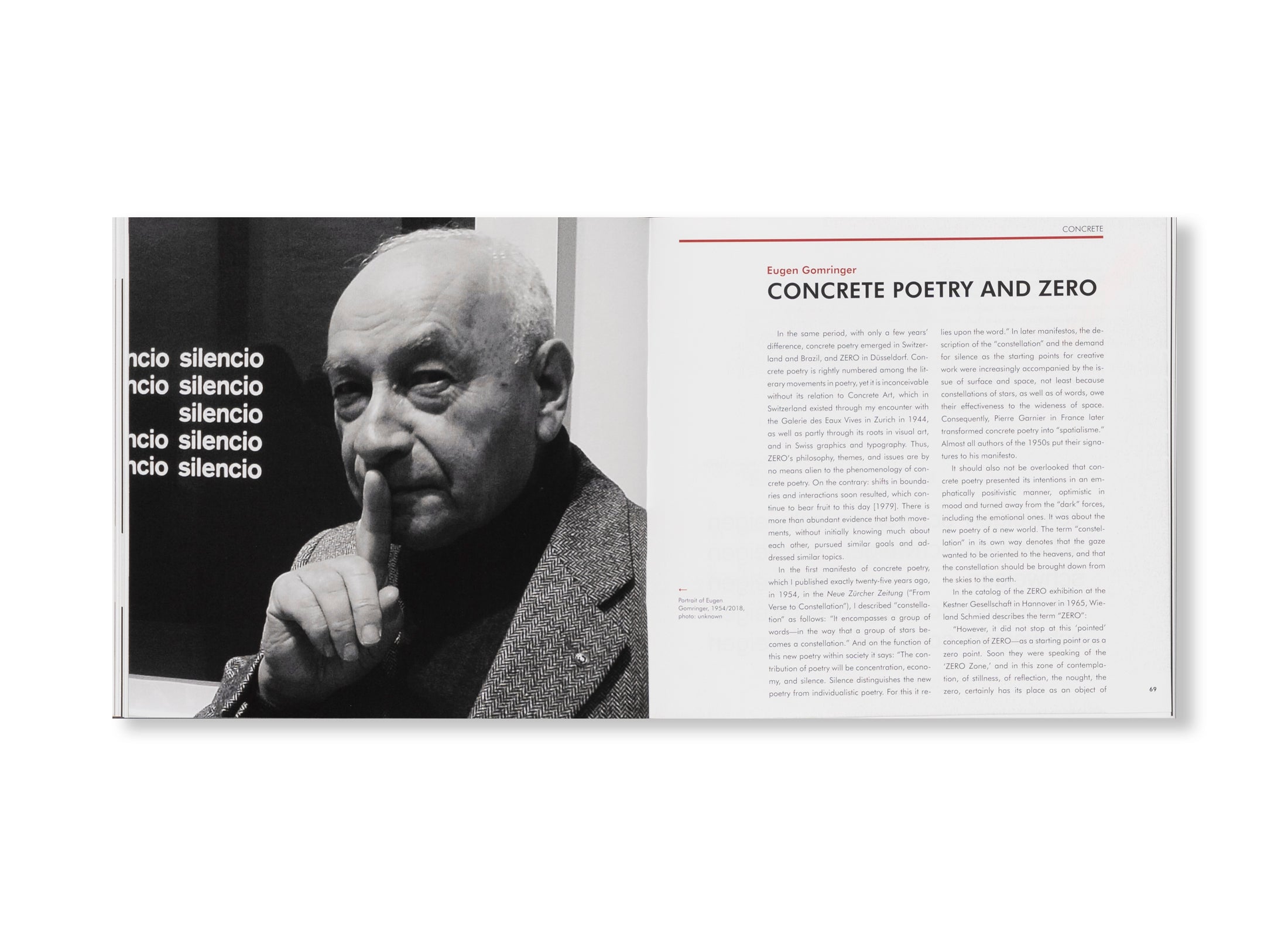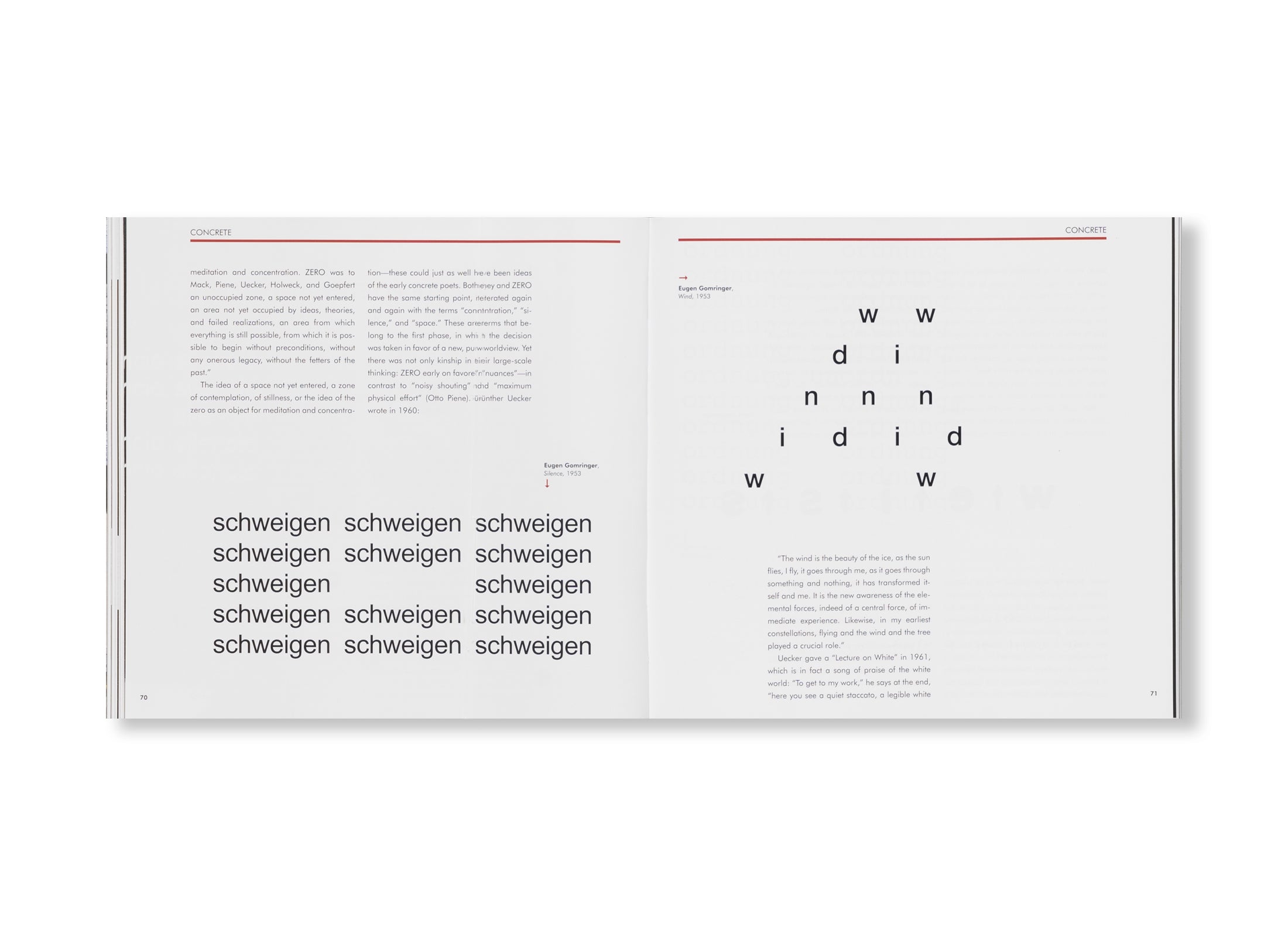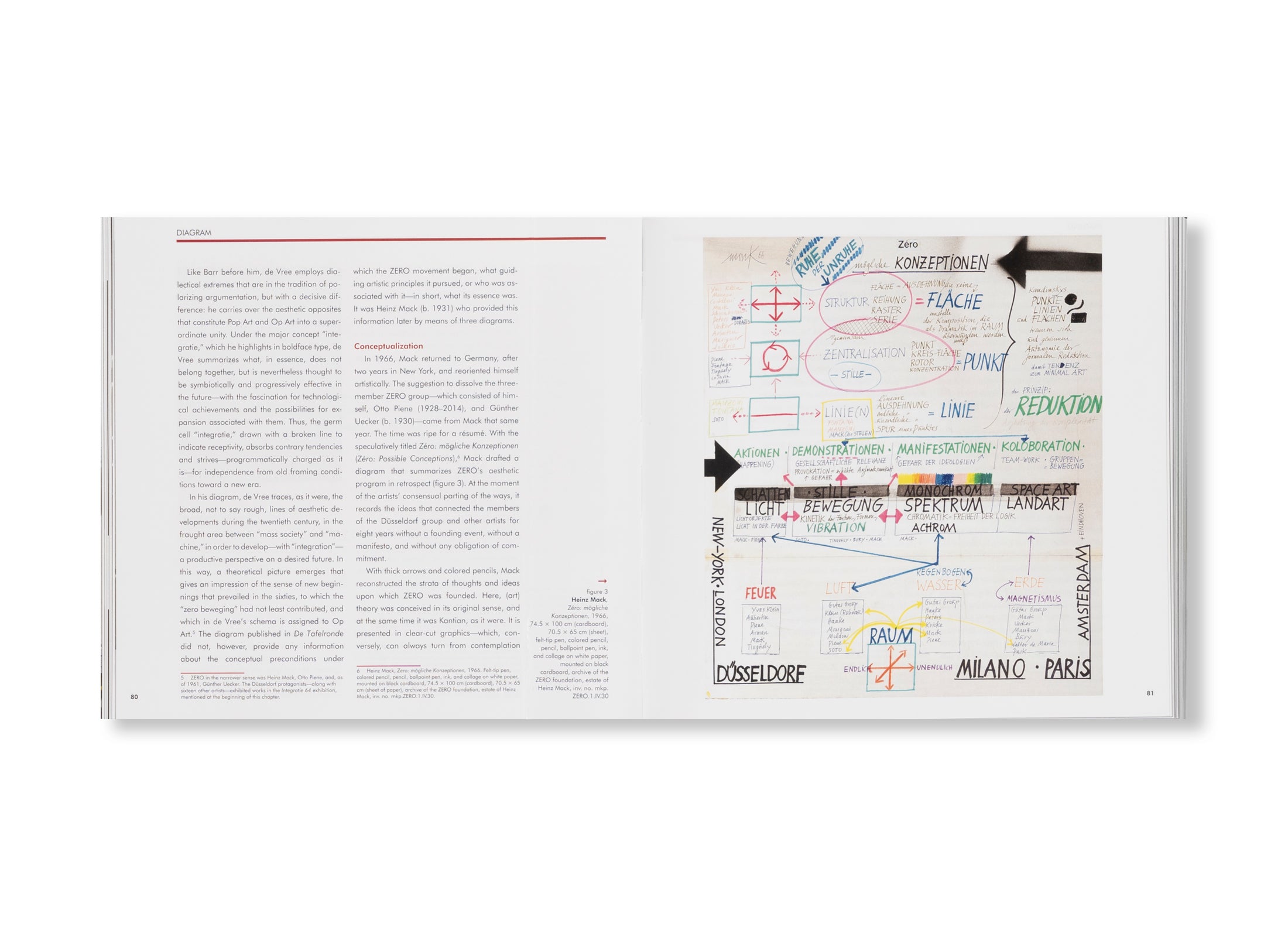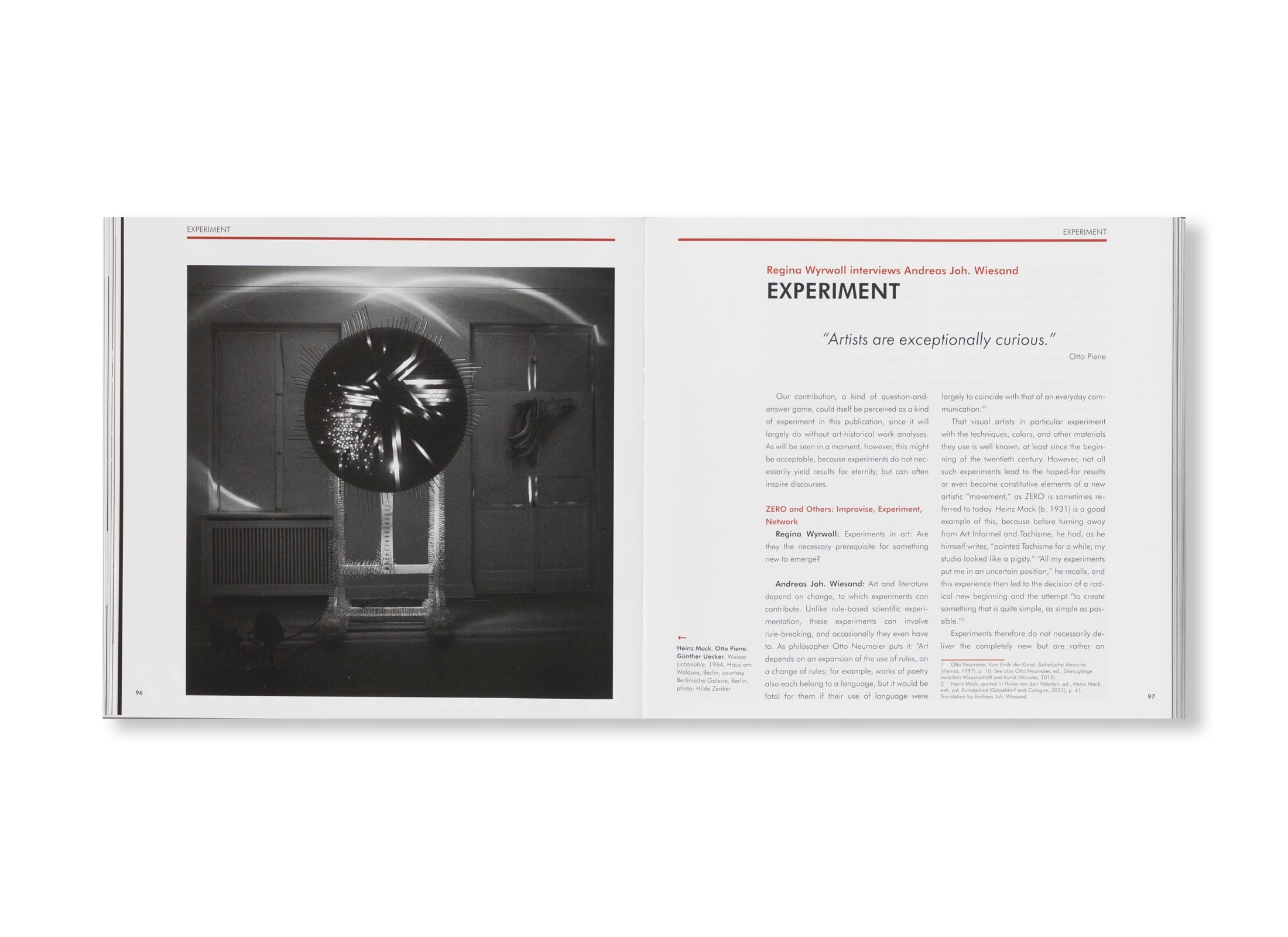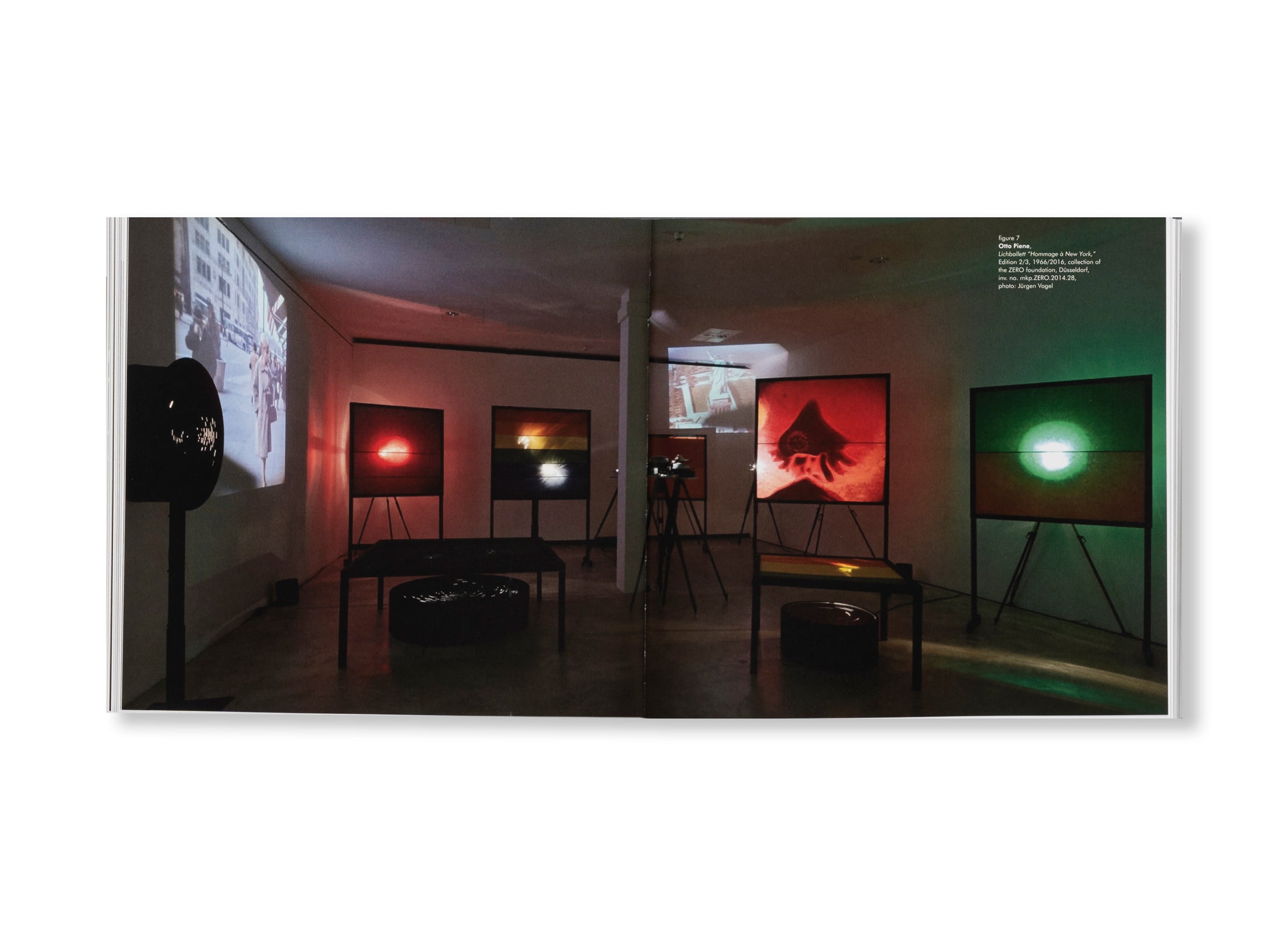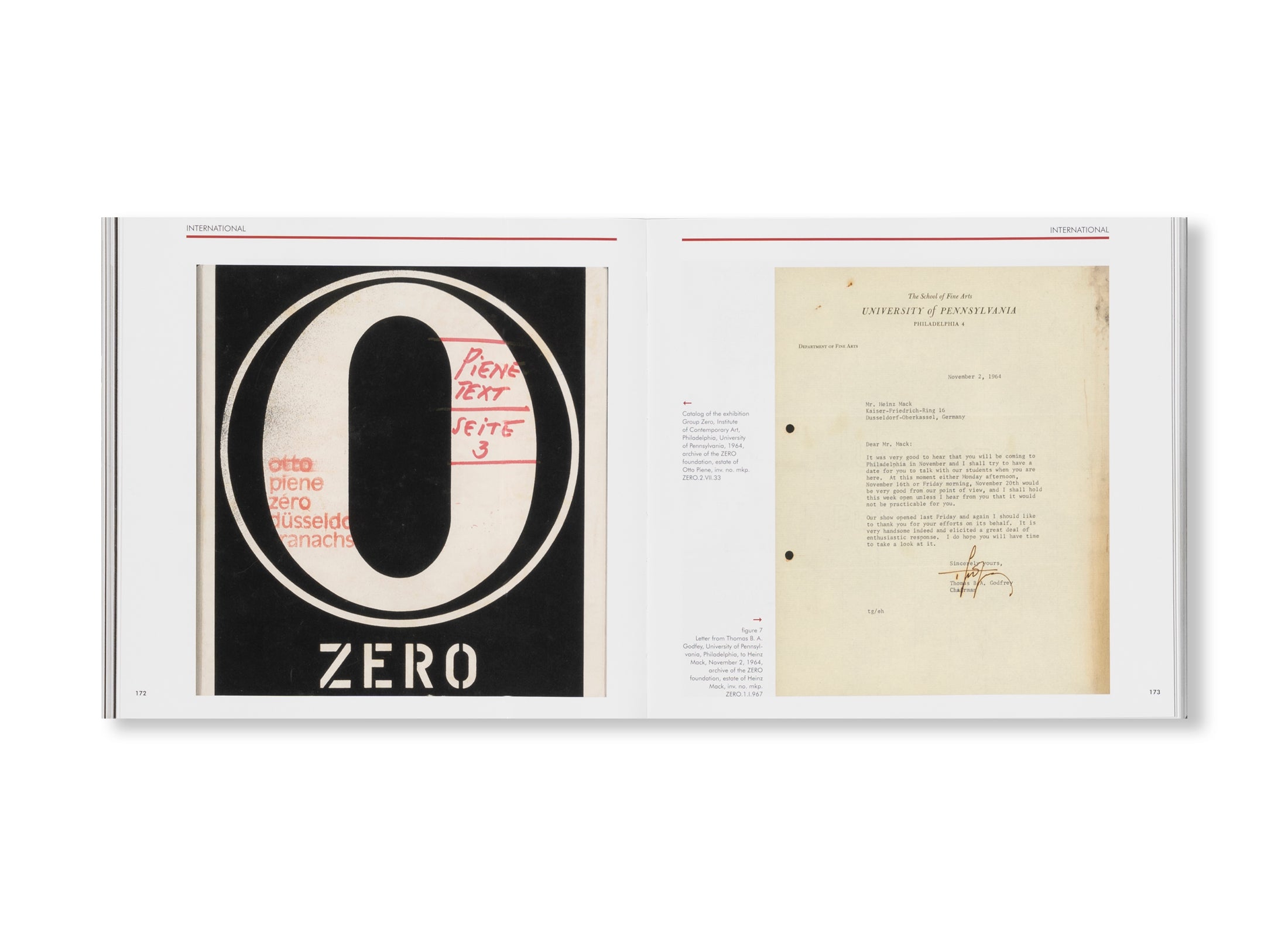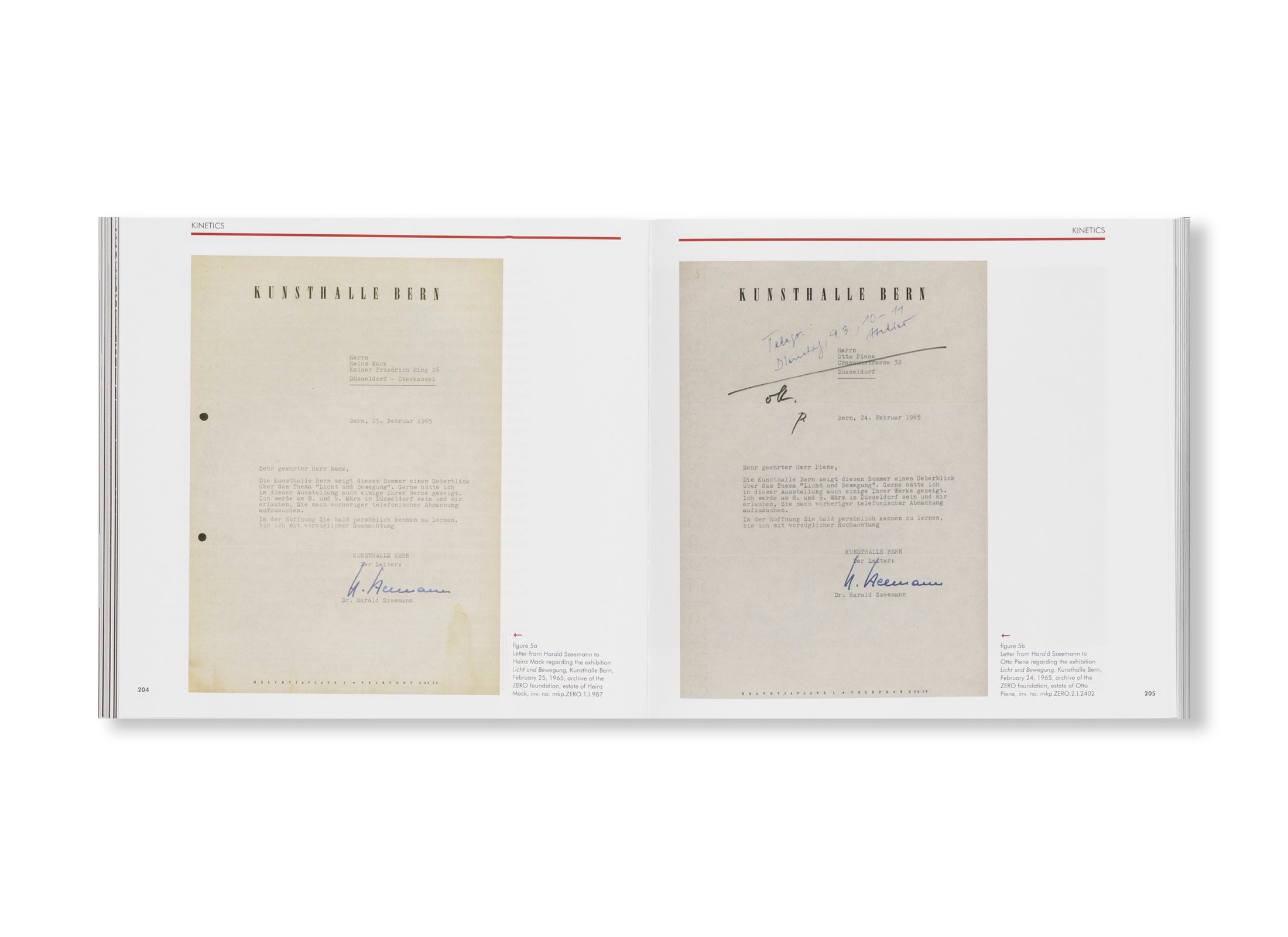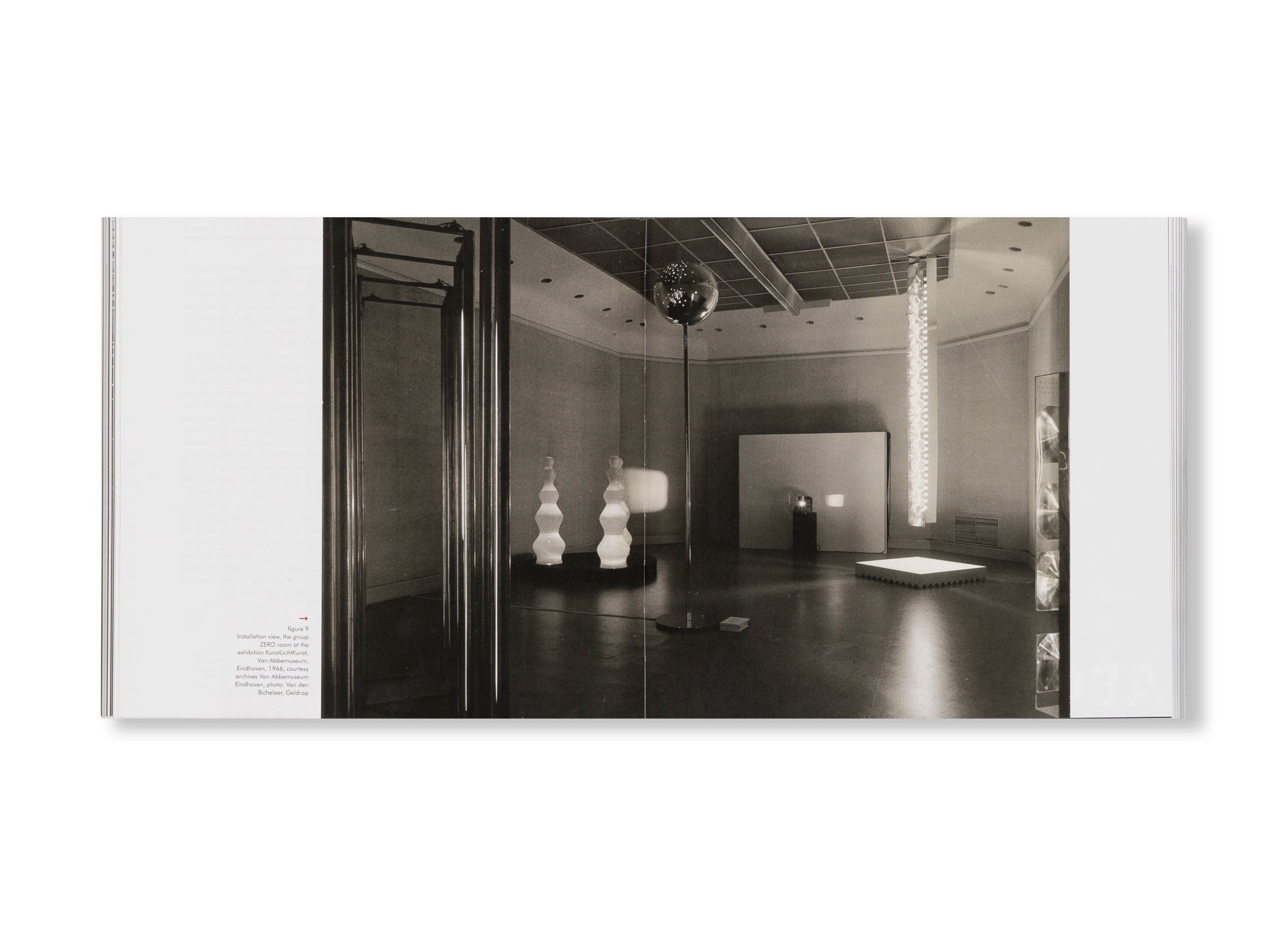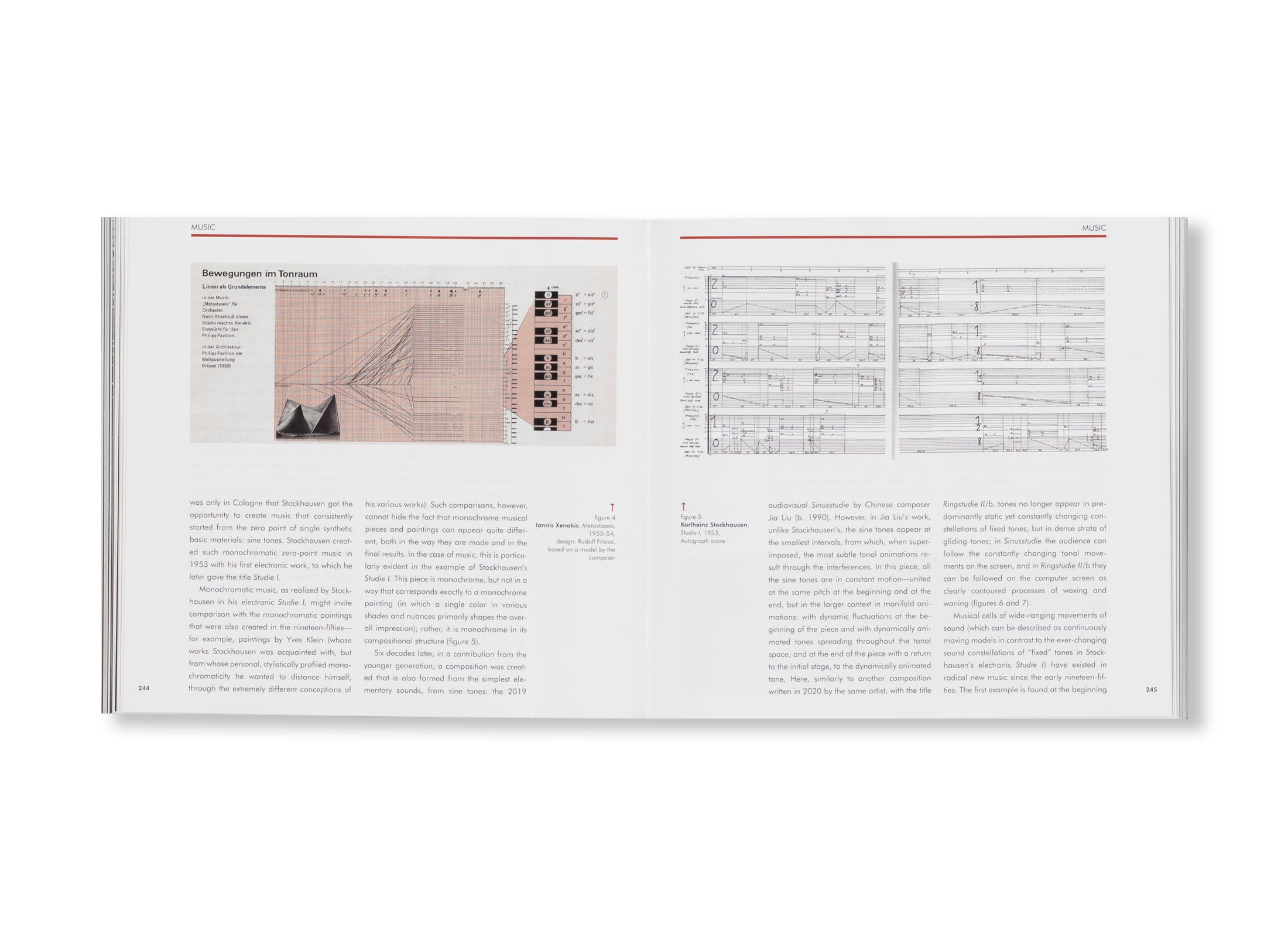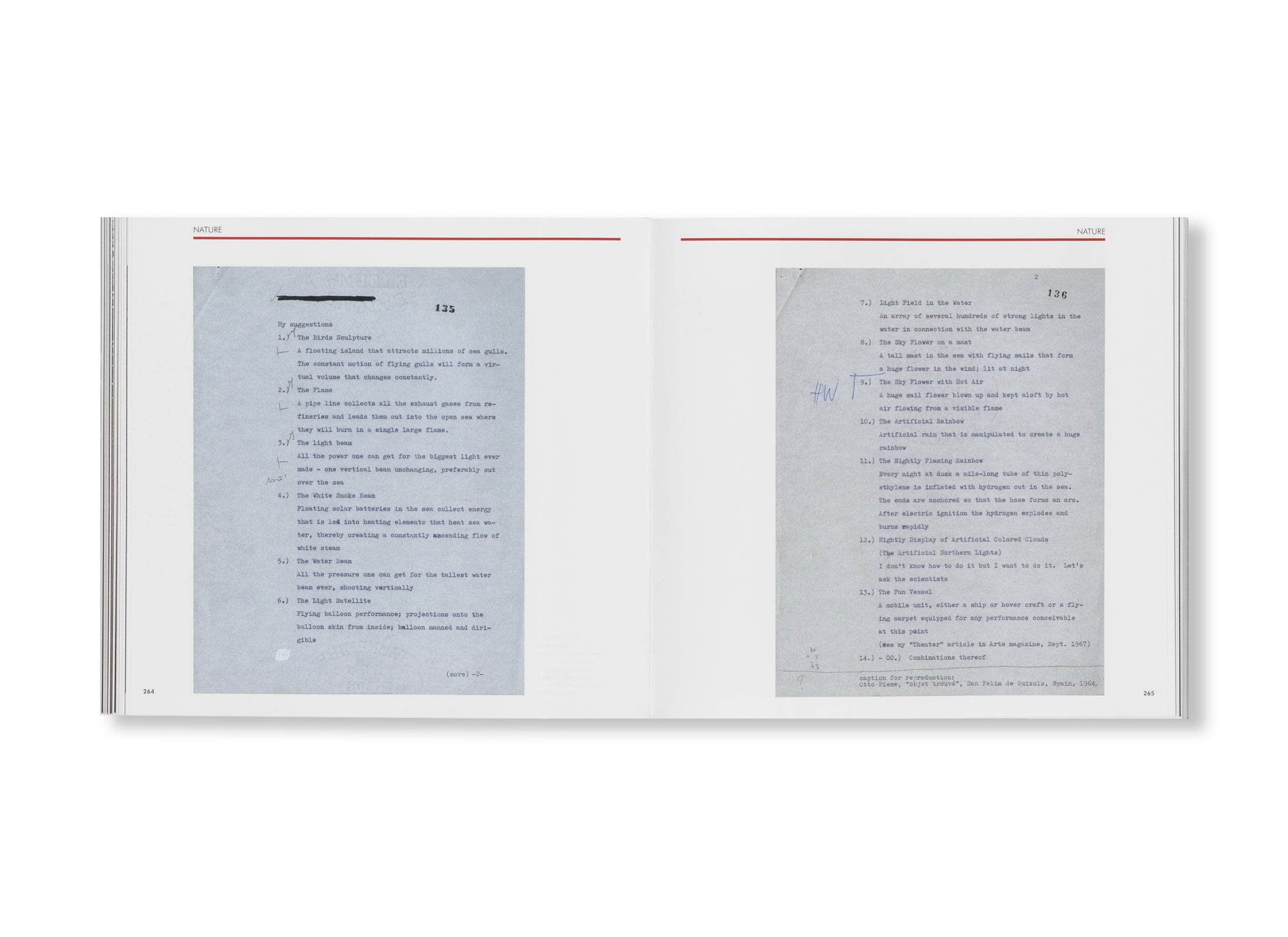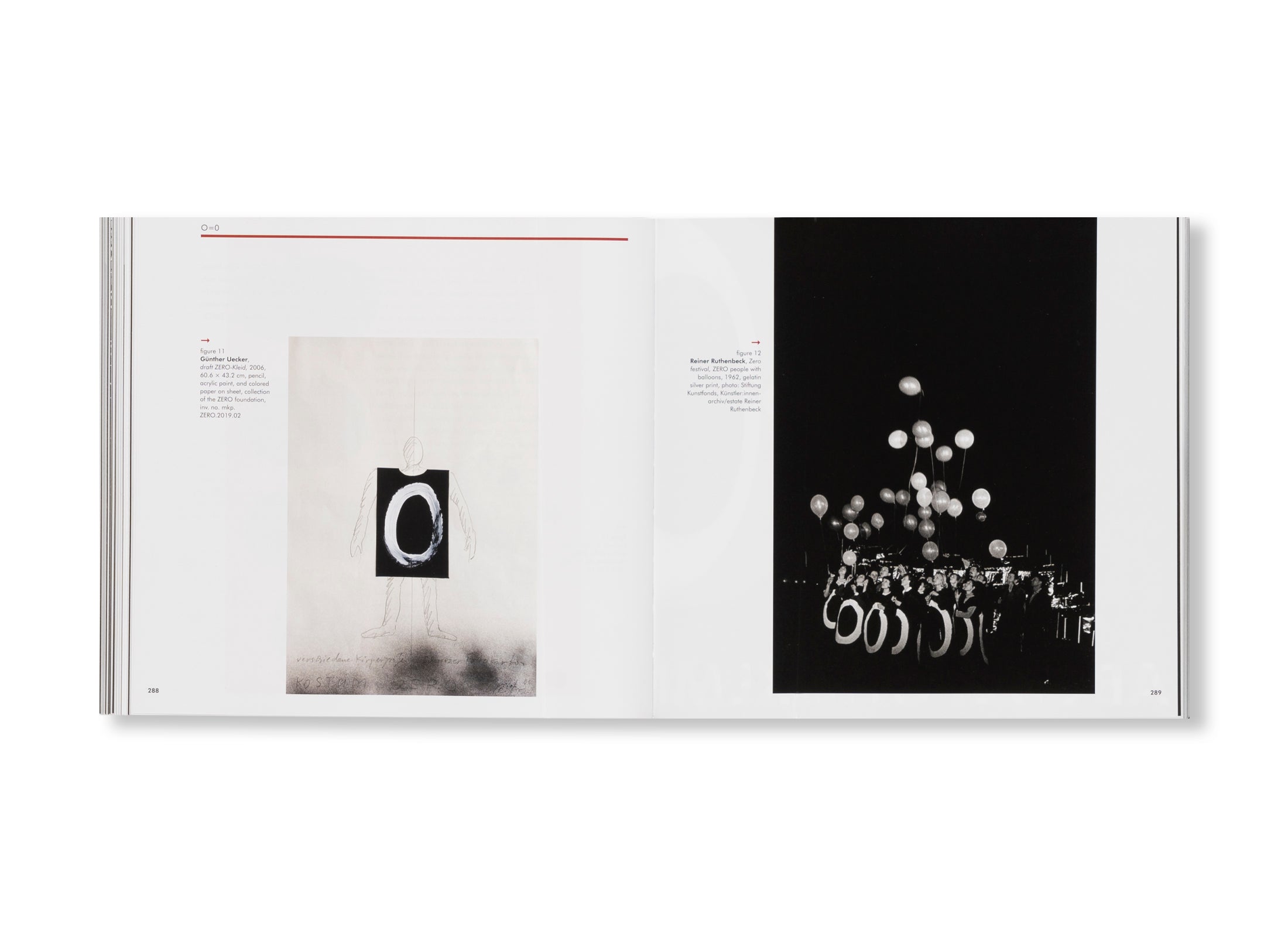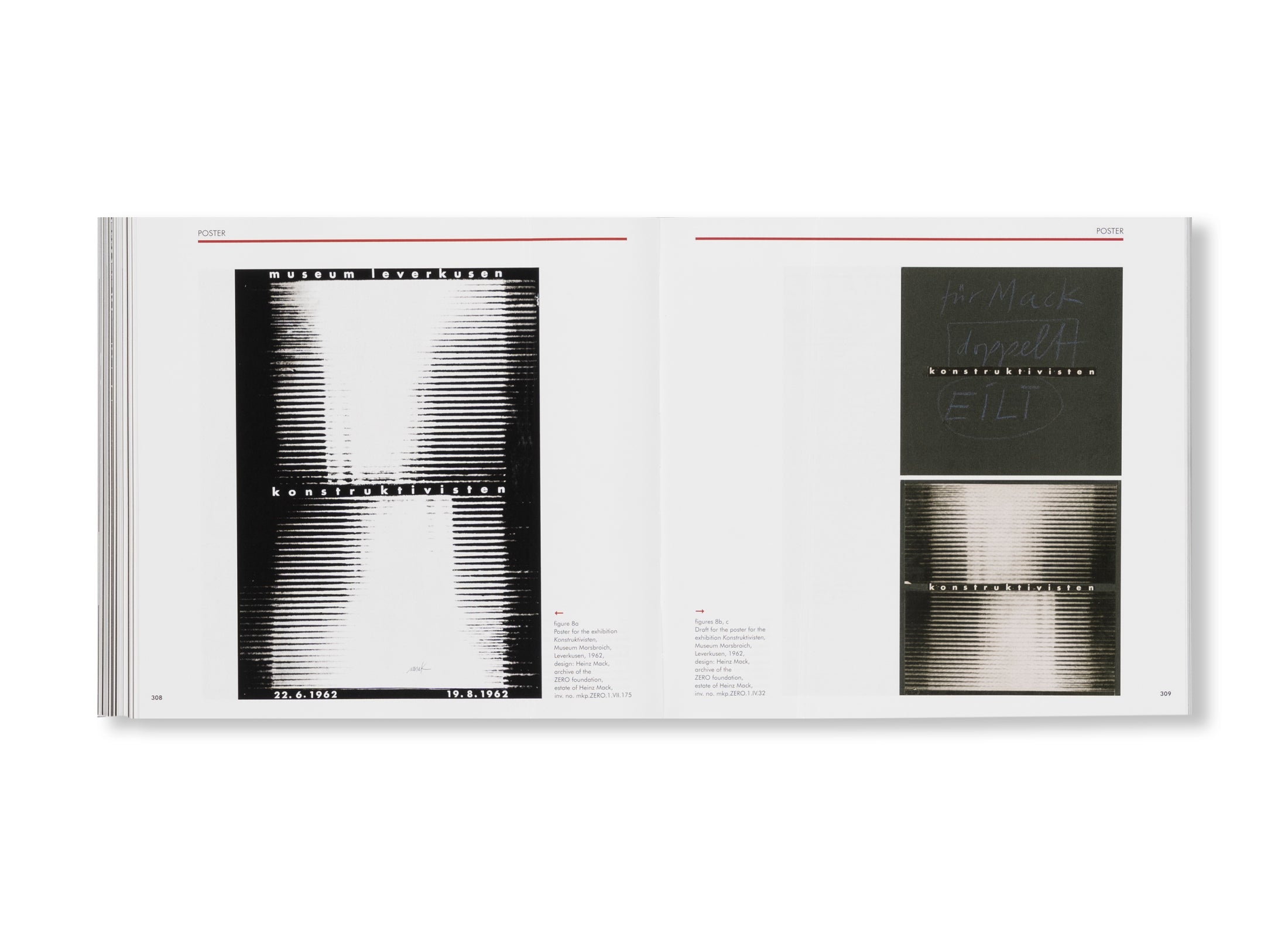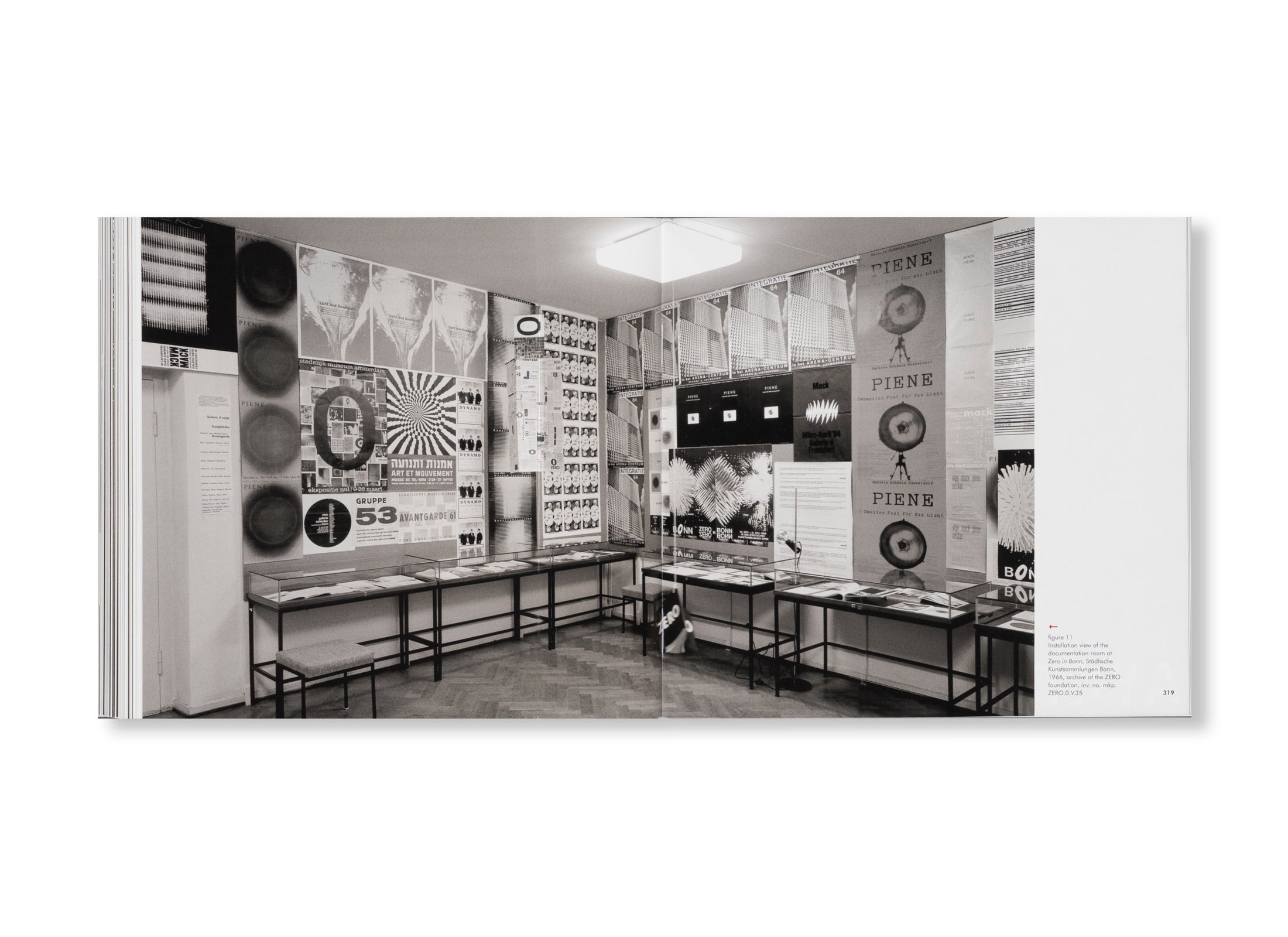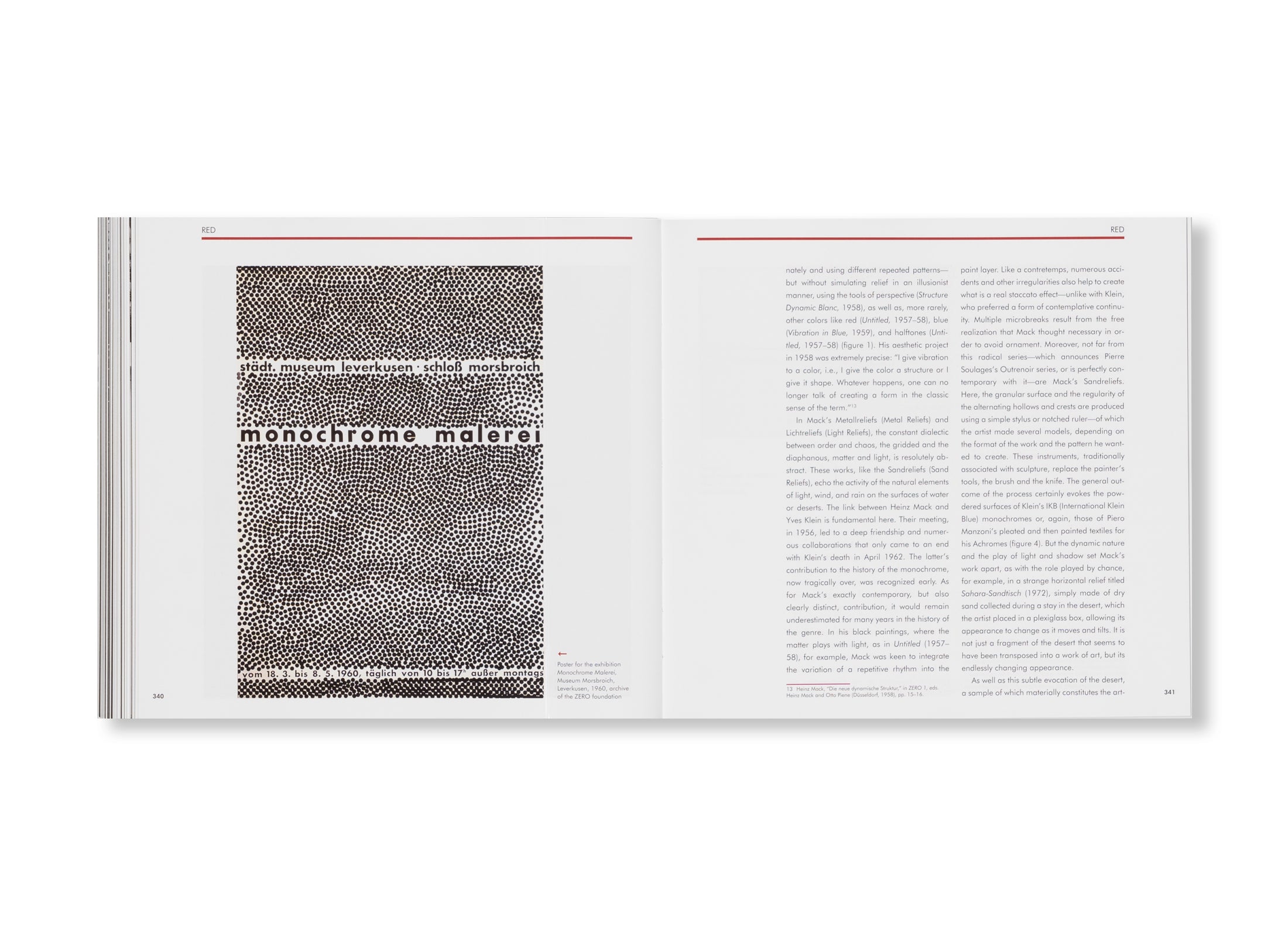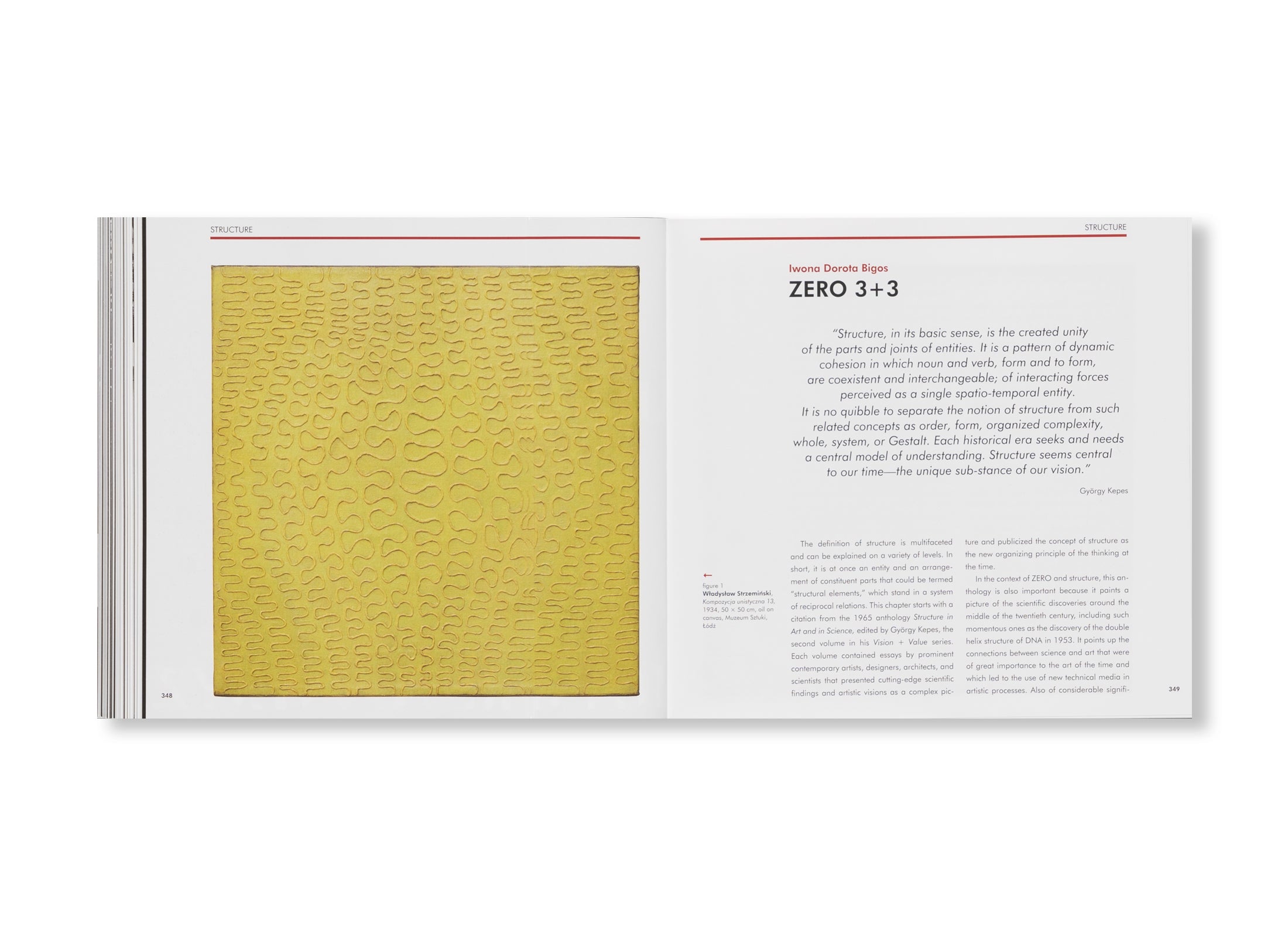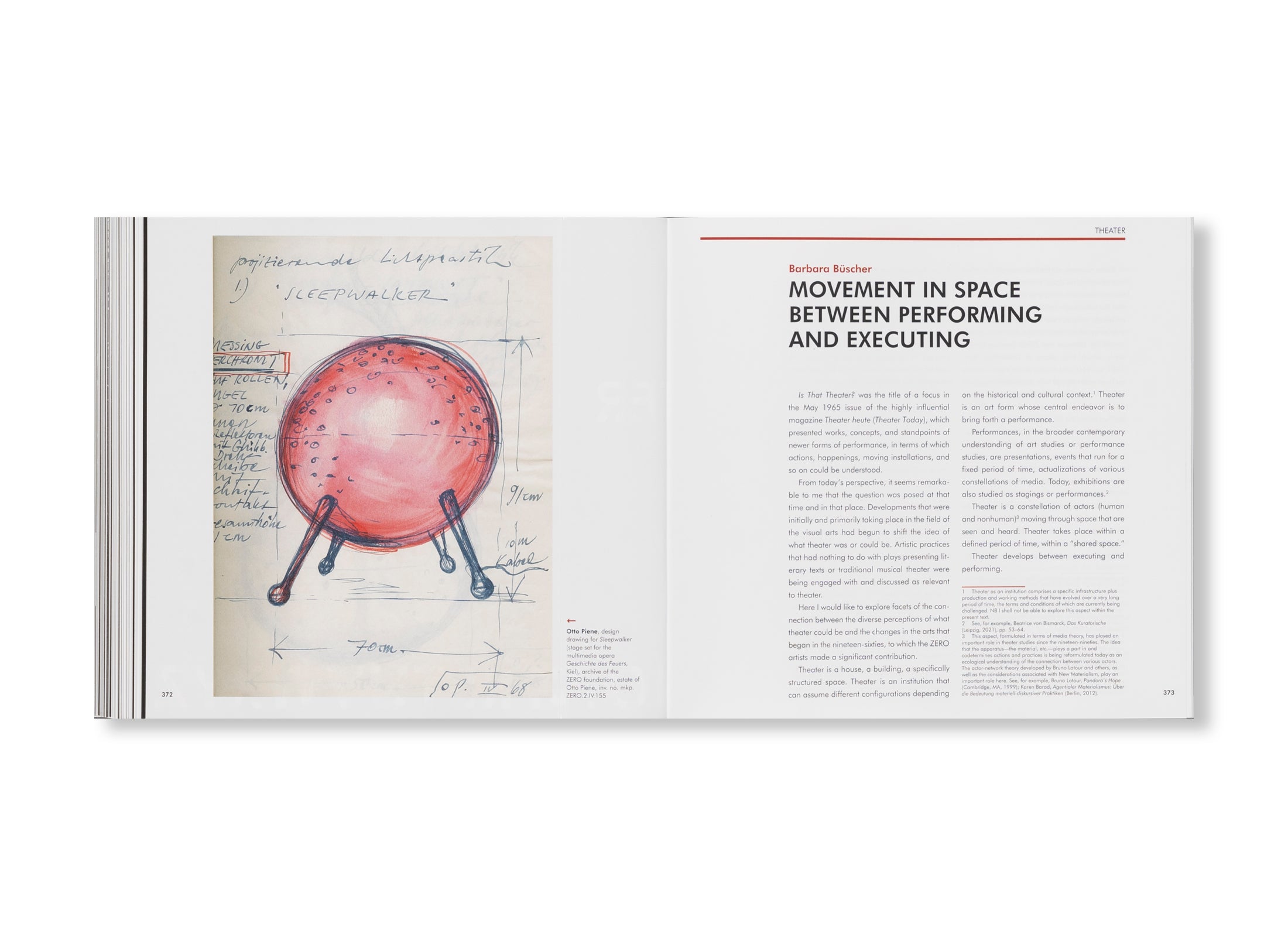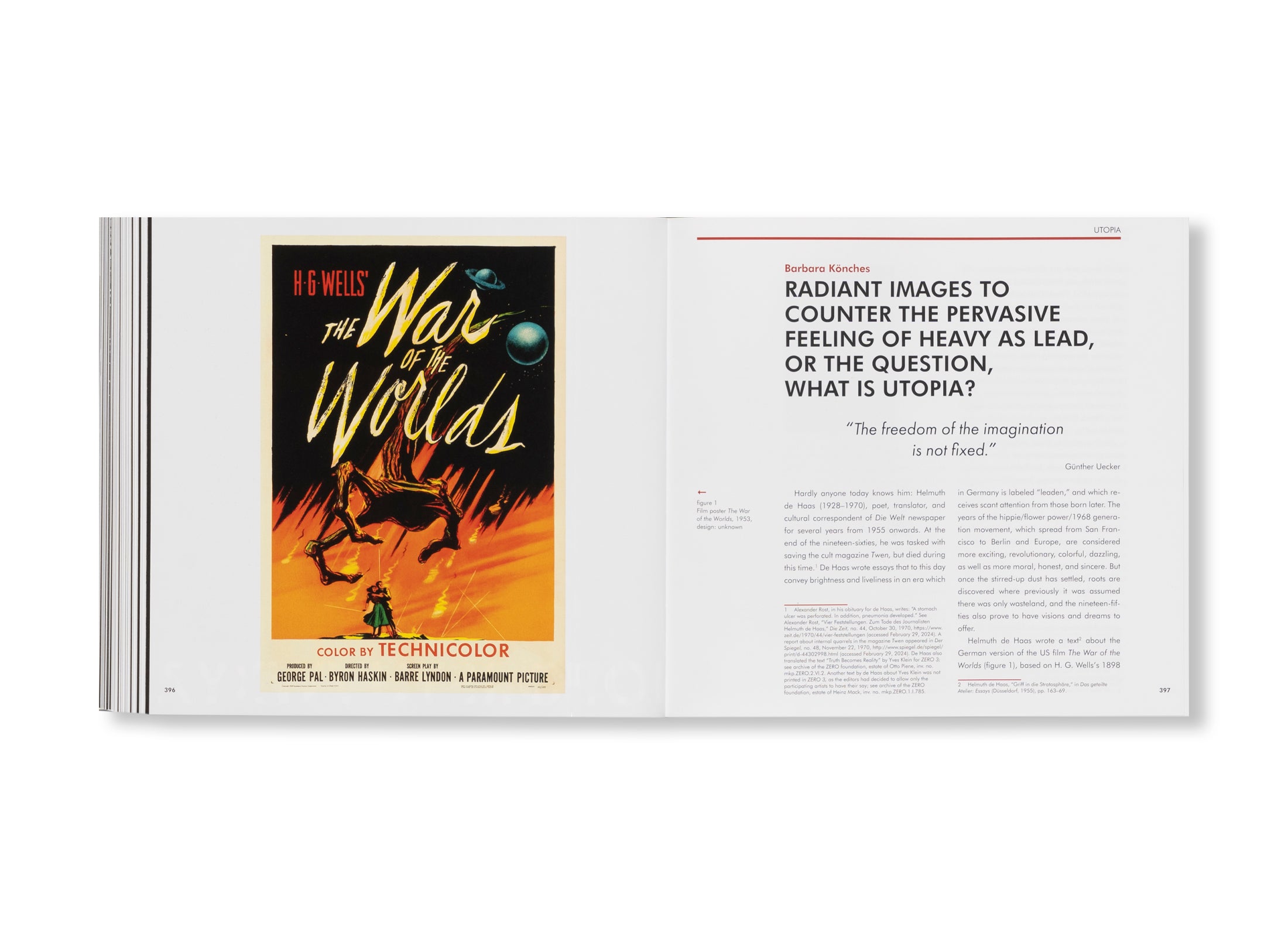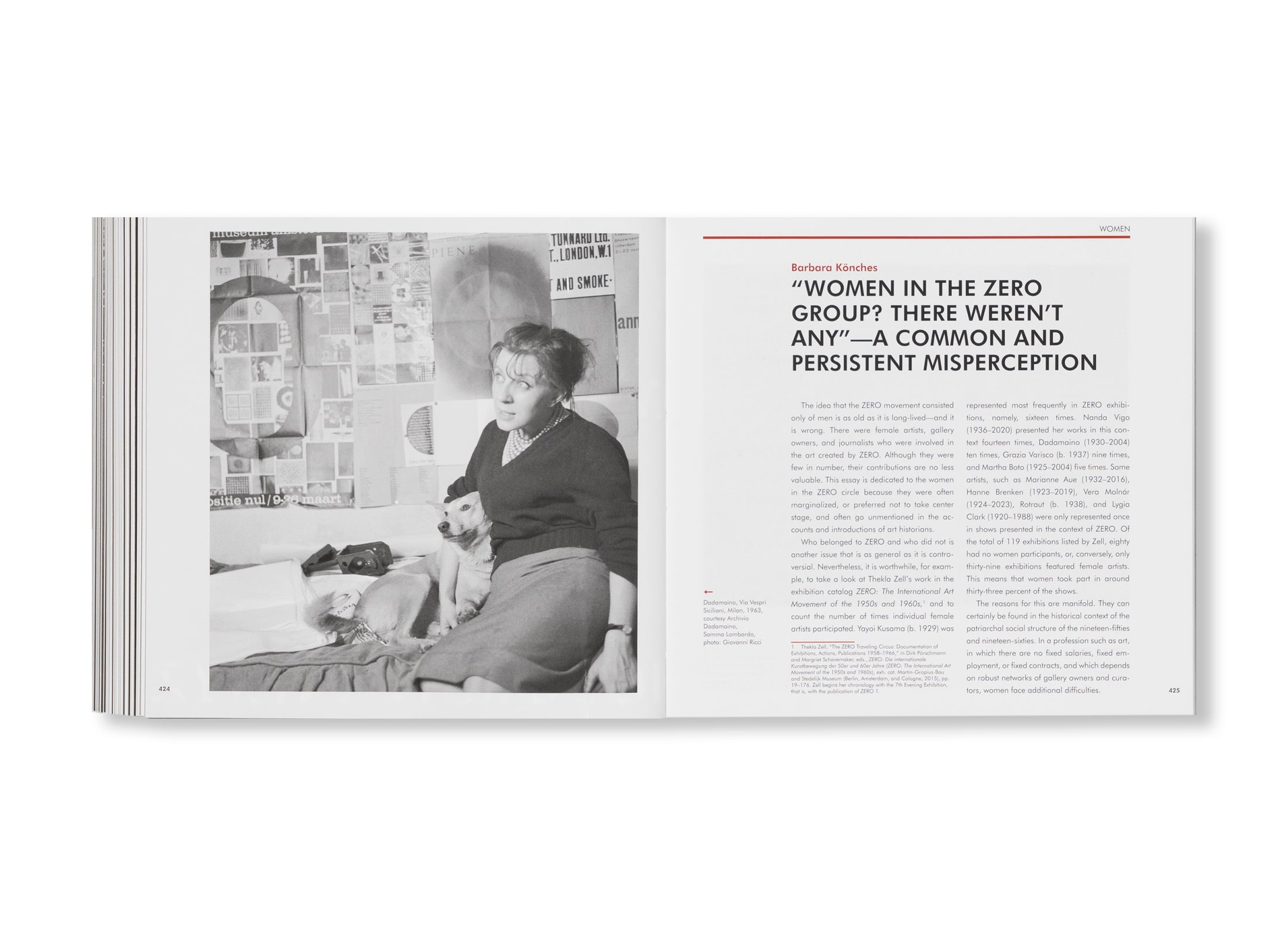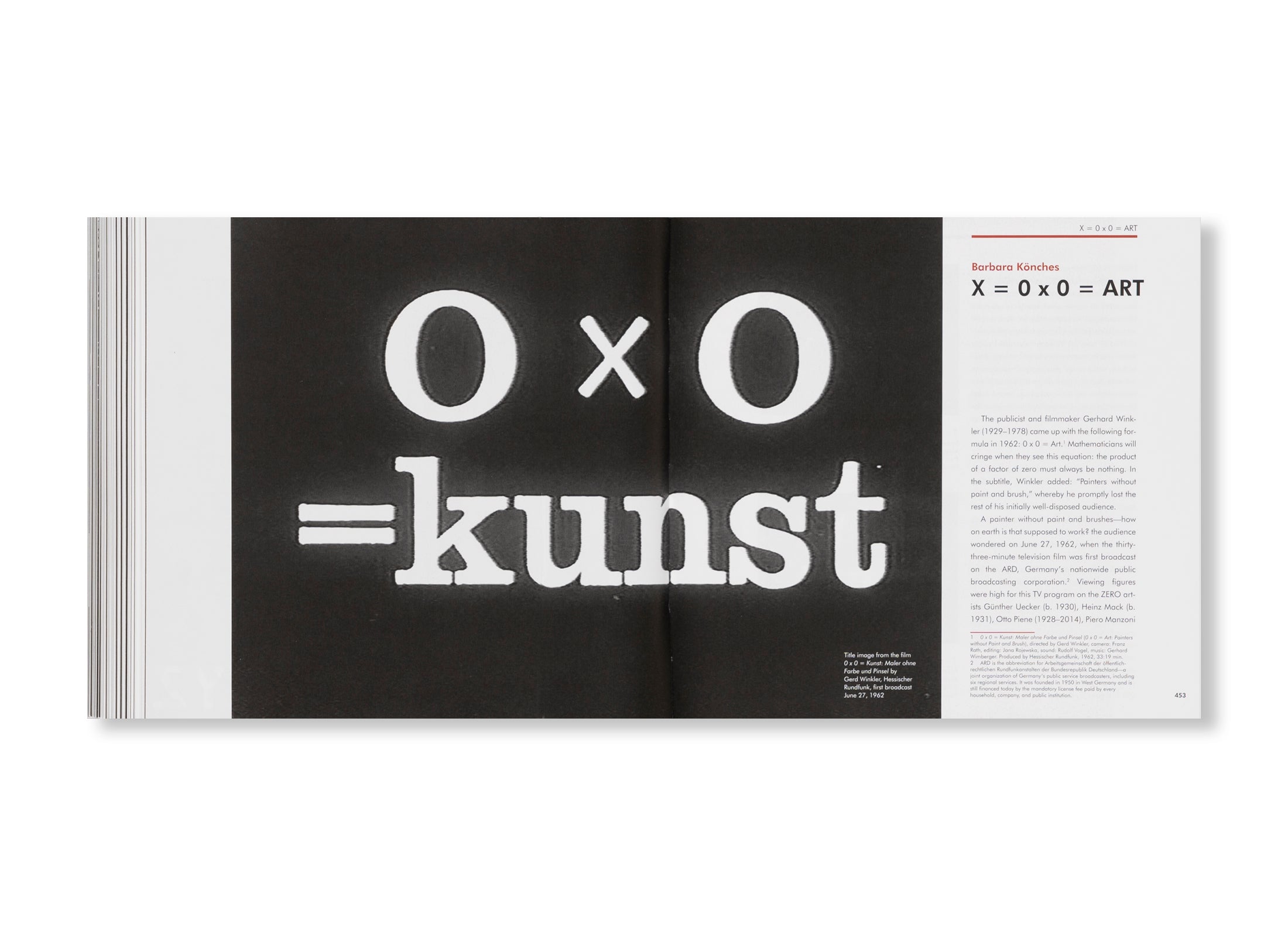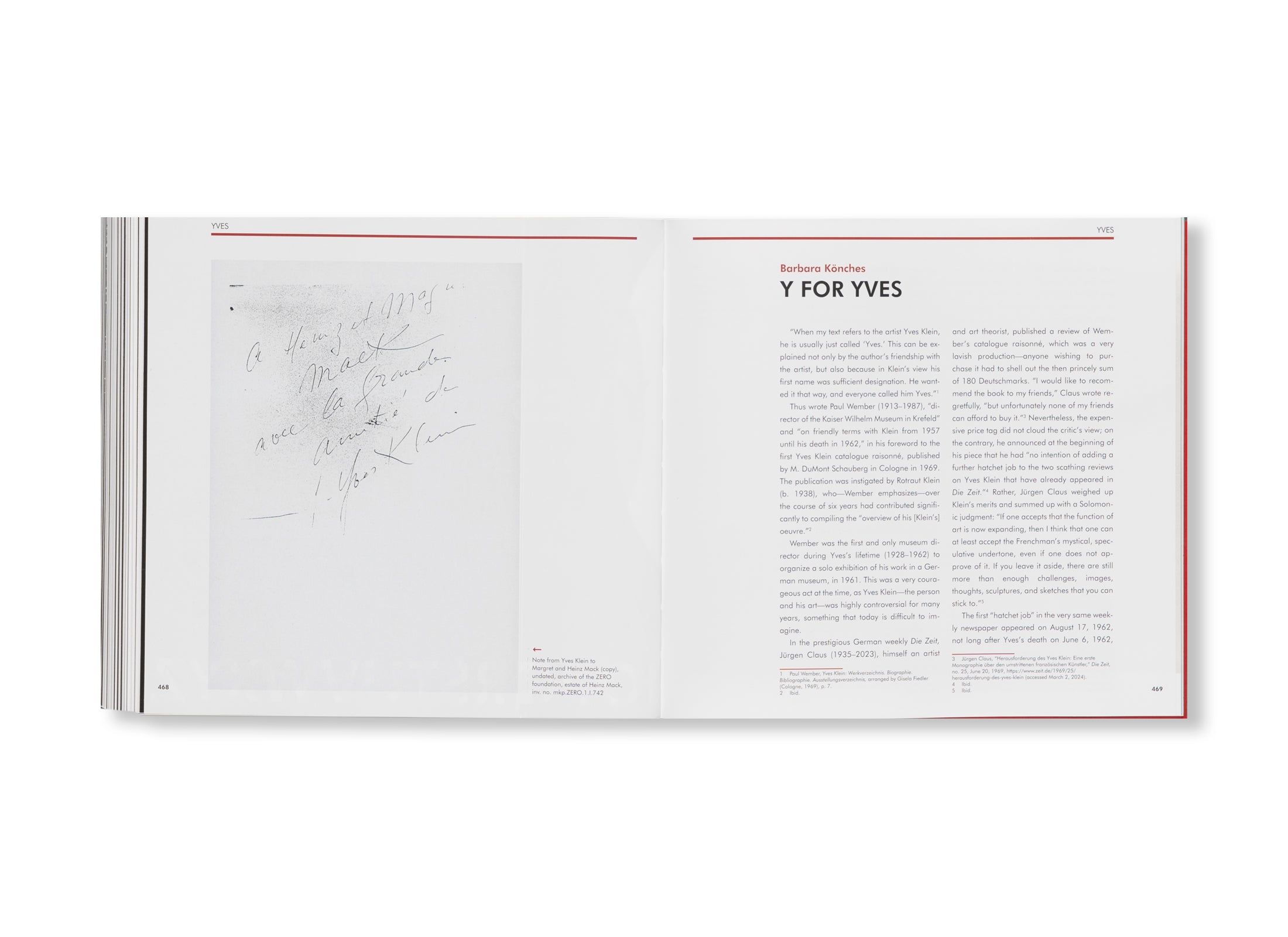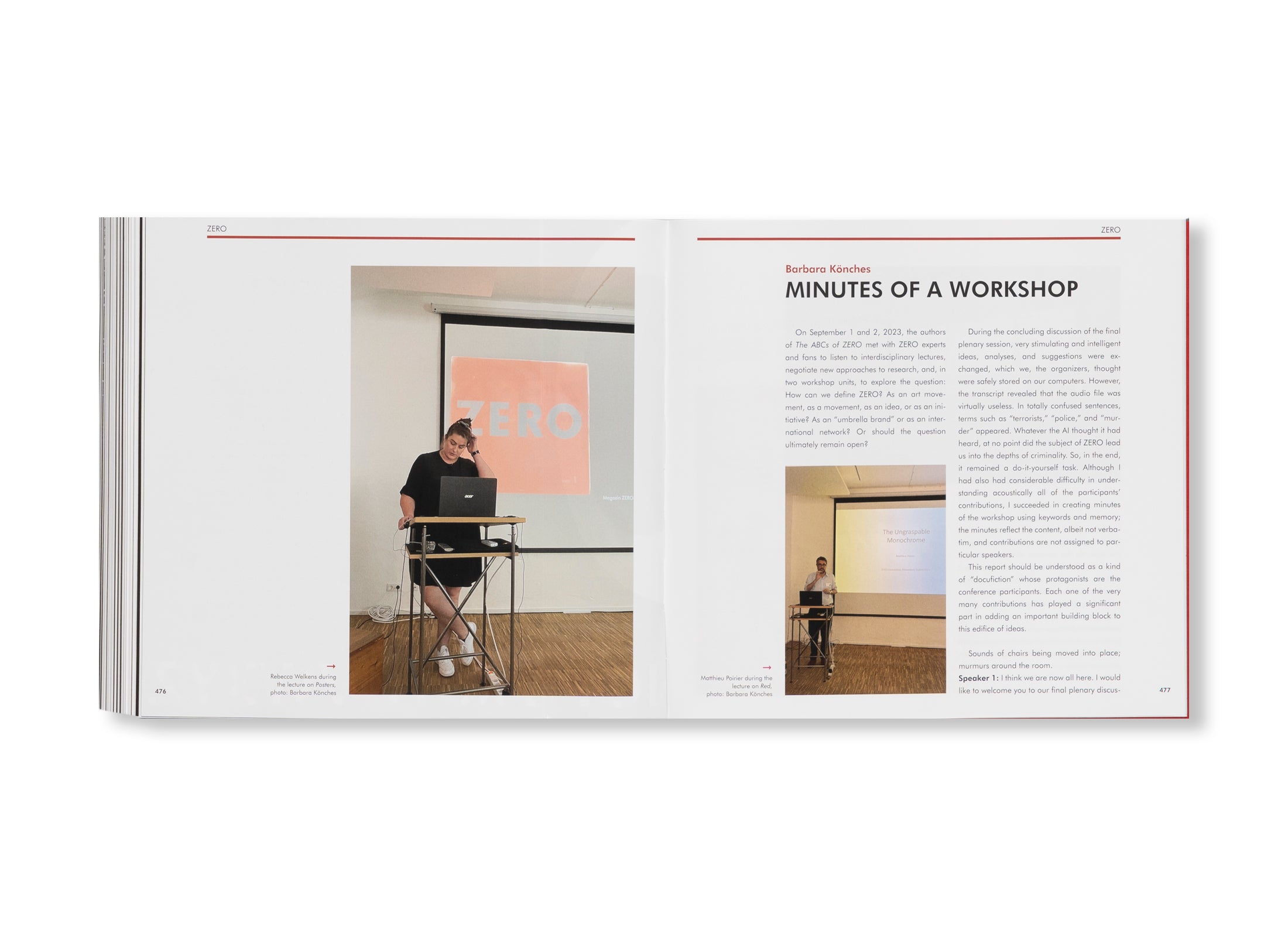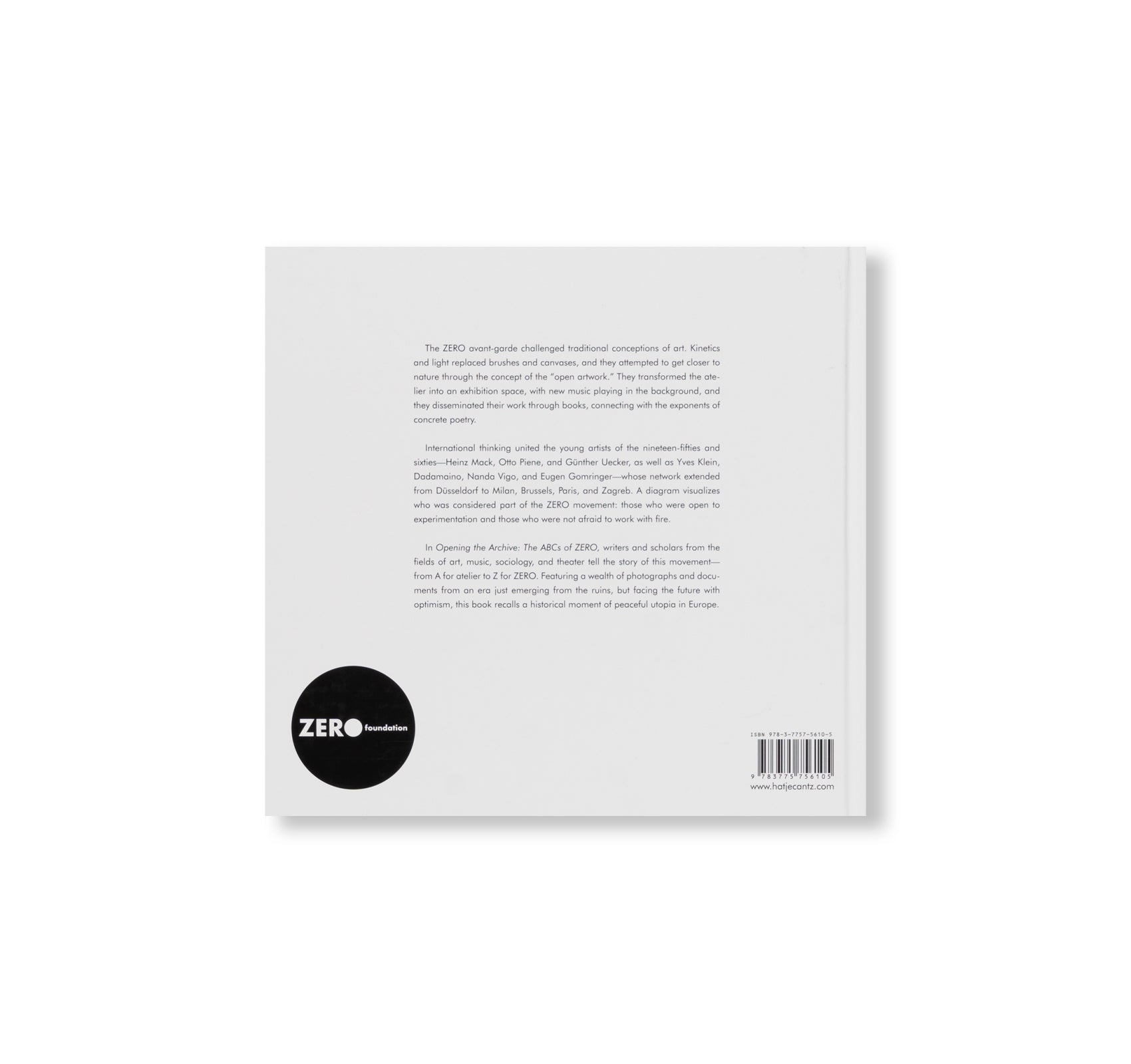OPENING THE ARCHIVE: THE ABCS OF ZERO
1950年代にドイツを起点としてヨーロッパ諸国で活動したアーティストグループ「ゼロ(ZERO)」の活動に焦点を当てた作品集。ハインツ・マック(Heinz Mack)、オットー・ピーネ(Otto Piene)、ギュンター・ウエッカー(Günther Uecker)を中心に1957年ドイツ、デュッセルドルフで結成され、オランダ、ベルギー、フランス、スイス、イタリアなどにも広がった、緩やかに組まれていた芸術家集団である。フランスの「アール・アンフォルメル(不定形の芸術 / Art Informel)や「タシスム(Tachisme)」のような戦後の主観的な芸術運動から脱却したいという集団的な欲求のもと集った。
「ZERO」にとって、アトリエを展示スペースに変え、本という形を通して彼らの芸術を広めることは、伝統的な芸術の概念に挑戦することに繋がった。こうして彼らは、コンクリート・ポエトリー(具体詩 / 視覚詩)の代表的な人物たちと友情を結ぶことができた。実験に前向きで、火を扱うことを恐れない者たちであったが、当時、前衛芸術に敬意を表すギャラリーはほとんどなかった。デュッセルドルフからミラノ、ブリュッセル、パリ、ザグレブへとネットワークを広げた1950年代から1960年代、この若きアーティストたちは、国際的な視野で見通した思考で結ばれていた。キネティックアートと光が筆とキャンバスに取って代わり、背景には新しい音楽が流れていた。彼らはまた、「オープン・アートワーク」というコンセプトを通して、自然にも近づこうとしていた。
本書は、美術、音楽、社会学、演劇の各分野の作家、学者、研究者がアトリエの「A」からZEROの「Z」までたどり、彼らの芸術運動が綴ってきたストーリーを語る。荒廃から抜け出したばかりでありながら、楽観的な考えをもって未来と向き合っていた時代に記録された写真や資料をたっぷりと掲載した本書は、ヨーロッパにおける平和なユートピアの歴史的瞬間を想起させる。
The ZERO Art Movement from A to Z.
For the ZERO avant-garde, traditional conceptions of art could be challenged through transforming the atelier into an exhibition space and disseminating their art through books. In this manner they made friends with the representatives of Concrete Poetry. A diagram visualizes who they thought to be part of the movement: those who were open to experimentation and those were not afraid to work with fire; even in the galleries, few of which were willing to pay homage to the avant-garde at this time. International thinking united the young artists of the 1950s and 60s, whose network extended from Düsseldorf to Milan, Brussels, Paris, and Zagreb. Kinetics and light replaced brushes and canvases, and new music played in the background. They also tried to get closer to nature through the concept of the Open Artwork.
In The ABCs of ZERO, writers, scholars, and authors from the fields of art, music, sociology and theater tell the story of this art movement—from A for atelier to Z for ZERO. Featuring a wealth of photos and documents from an era just emerging from the ruins, but facing the future with optimism, this book recalls a historical moment of peaceful utopia in Europe.
